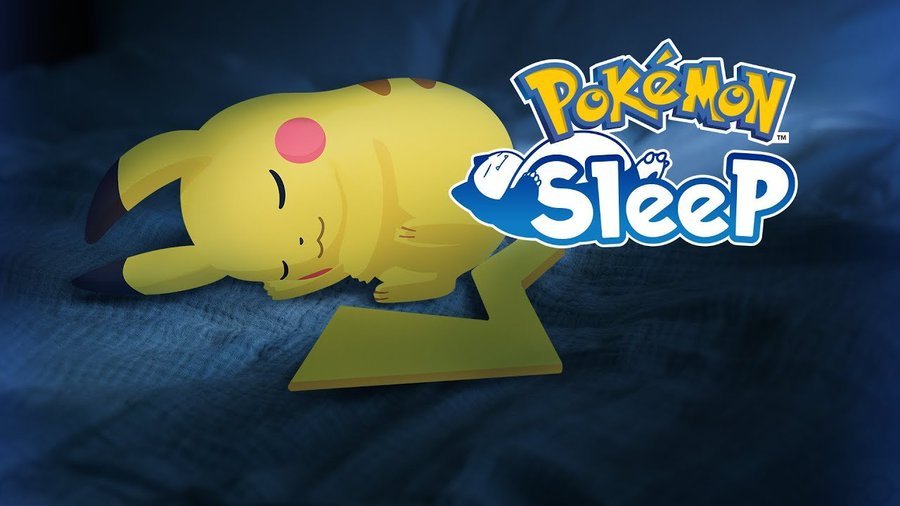Exploring the Latest Insights from Pokémon Sleep: Understanding Sleep Patterns and the Impact of Full Moons
In the ever-evolving world of wellness and sleep research, Pokémon Sleep has emerged as a unique tool for understanding sleep behaviors. A recent event, dubbed the Good Sleep Day, provided fascinating insights into how various factors, including lunar phases, can influence our sleep patterns. This article delves into the findings from this three-day event while offering practical tips for better sleep.
The Good Sleep Day Event: A Closer Look
Conducted over three days, the Good Sleep Day event aimed to gather data on sleep habits from participants worldwide. During this time, researchers collected information on sleep duration and quality, shedding light on how external factors like the full moon can affect our nightly rest.
One intriguing observation noted during the event was a slight increase in average sleep duration. Despite the common belief that full moons can disrupt sleep, data revealed that on the night of the full moon, participants slept an average of 7 seconds longer than usual. This small yet significant difference suggests that even during periods typically associated with sleep disturbances, there can be variations in individual experiences.
Analyzing Sleep Duration Trends
The Good Sleep Day event provided a comprehensive comparison of sleep durations over specific dates against the averages from the preceding week. Here are the highlighted findings:
- April 12 (Saturday): Participants recorded an average sleep duration of 7 hours and 57 minutes, which was 1 minute longer than the previous week.
- April 13 (Sunday): The average sleep duration maintained at 7 hours and 22 minutes, showing no change from the previous week.
- April 14 (Monday): Sleep duration slightly decreased to 7 hours and 20 minutes, which was 2 minutes shorter compared to the same day the prior week.
These statistics indicate that while there are fluctuations in sleep duration, the overall impact of the Good Sleep Day event prompted participants to be more mindful of their sleep habits.
Upcoming Good Sleep Day Events
Given the success of the initial Good Sleep Day, Pokémon Sleep plans to host future events. The next gathering is scheduled from May 12 to May 14, coinciding once again with the full moon. This provides an excellent opportunity for participants to engage in sleep research while potentially benefiting from a greater awareness of their sleep patterns during this lunar phase.
Practical Sleep Tips: Addressing Social Jet Lag
As part of the initiative, Pokémon Sleep also aims to educate users on the intricacies of sleep hygiene. One important takeaway from this month’s insights is the concept of social jet lag. This phenomenon occurs when there is a misalignment between our sleep schedules during the week and those on weekends.
Many individuals maintain a consistent sleep routine from Monday to Friday, only to extend their sleep or shift their bedtime later on the weekends. While it may seem harmless to indulge in extra sleep during days off, this behavior can confuse our internal biological clock, leading to feelings of grogginess and fatigue on Mondays.
If you’ve ever felt sluggish after sleeping in on a weekend, you might have experienced social jet lag. The issue isn’t necessarily the amount of sleep but rather the disruption in your body’s natural rhythm, which can accumulate into what is known as sleep debt.
The Importance of a Consistent Sleep Schedule
To mitigate the effects of social jet lag, it’s crucial to strive for a consistent sleep schedule throughout the week. Here are some strategies to consider:
Maintain Regular Sleep Hours: Aim to go to bed and wake up at the same time every day, even on weekends. This helps regulate your body’s internal clock and can lead to improved sleep quality.
Limit Late-Night Activities: If possible, avoid engaging in stimulating activities close to bedtime. This includes screen time, vigorous exercise, or consuming caffeine, which can all interfere with your ability to fall asleep.
Create a Relaxing Bedtime Routine: Establish a calming pre-sleep routine that signals to your body that it’s time to wind down. This could include reading, gentle stretching, or practicing mindfulness techniques.
Be Mindful of Naps: While short naps can be beneficial, avoid long or late-afternoon naps that can disrupt your nighttime sleep. If you need to nap, keep it to 20-30 minutes and aim for earlier in the day.
- Listen to Your Body: Pay attention to how you feel. If you notice that you are consistently tired during the day, it may be a sign that you need to adjust your sleep habits.
The Role of External Factors in Sleep Quality
While individual habits play a significant role in sleep quality, external factors like the full moon can also have an influence. Research suggests that lunar cycles may impact sleep patterns for some individuals, leading to variations in sleep duration and quality. Being aware of these factors can empower individuals to adjust their sleep practices accordingly.
Conclusion
The insights gained from the Good Sleep Day event highlight the importance of understanding sleep behaviors and the factors that influence them. By participating in sleep research and adopting best practices for sleep hygiene, individuals can work toward achieving better sleep quality. As Pokémon Sleep continues to explore these areas, the community can look forward to future events and tips that promote healthier sleep habits.
